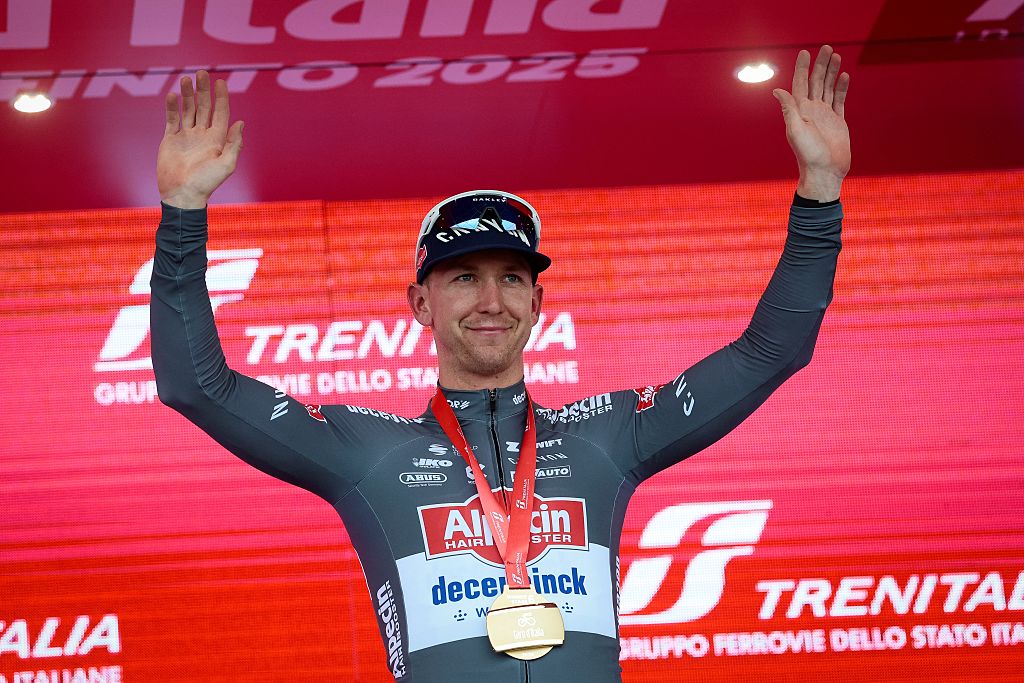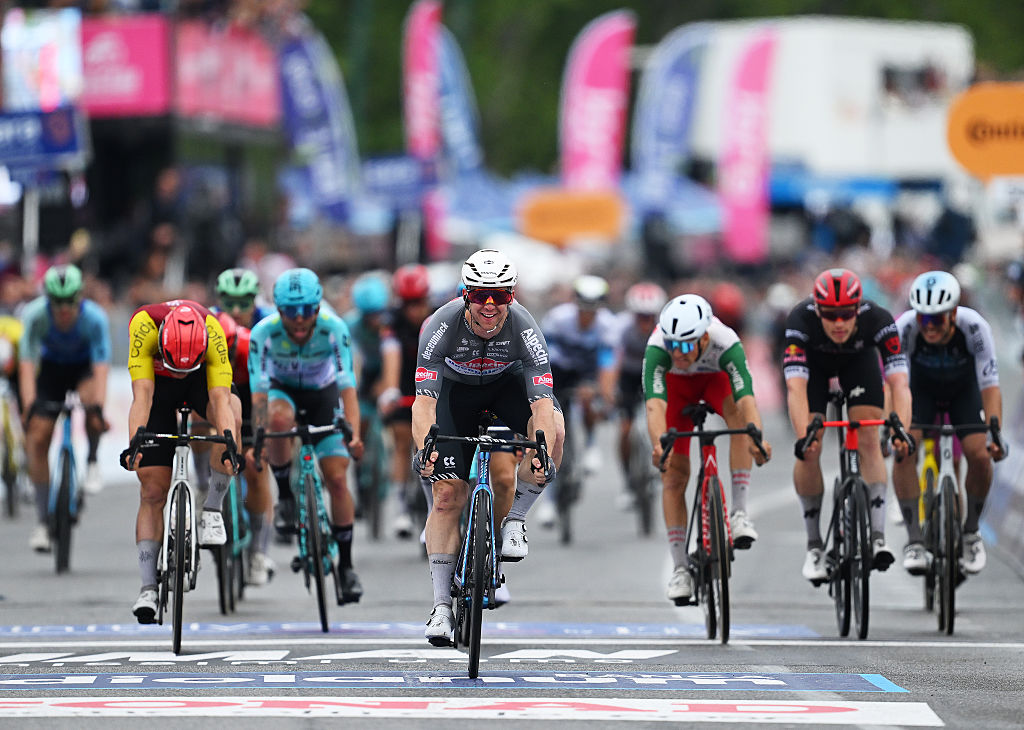
No Grand Tour stage win is ever unwelcome, and sprinter Kaden Groves was doubtless in part delighted to be able to celebrate the victory on stage 7 of the Giro d'Italia.
However, Groves' concern for his injured teammate Juri Hollmann was also uppermost in his mind in his winner's press conference on Thursday in Naples.
Groves told reporters he had yet to get a definitive update on Hollmann's injuries after the German rider was caught up in a major crash with 71km to go.
The Australian himself had not been affected by the pile-up, he said, but that was merely a question of luck, and he expressed hope that the numerous riders caught up in the crash had not been affected.
"We are still not sure what the verdict is with Juri. It was a very nasty crash for a lot of riders, and a neutralisation came after, so I've got a lot of mixed feelings right now," Groves said.
"Not knowing the race started or not, it's mentally tough, too – we switch off and get cold and then have to start again.
"But my thoughts are with Juri, he's played a big part in the team in the last days, he also made so many sacrifices to get here in good shape, he was super unlucky to be injured today. So this win is for him."
The full extent of Hollmann's injuries was not clear immediately after the stage, although Alpecin-Deceuninck sources confirmed separately that it had been a very serious crash. The team posted to social media that "a broken arm is feared" for the German rider.

"It came at a fast moment in the race, because we were pulling the break back and descending on wet roads well," Groves said. "The crash happened in front of me and I was lucky to slow and avoid it.
"It was a slippery road, a touch of wheels, someone brakes and maybe slips, and it causes a chain reaction, so these crashes happen. There's not a lot you can do about it, I just hope the guys are not too bad."
As for the sprint itself, Groves said that he had found the final kilometres and run-in to Naples more technical with the rain and the wet cobblestones, and that staying in the right position had been "super important to arrive safely."
Taking the final kilometres in the front was not ideal for the legs, he added, but at least it had the advantage of getting a clear view of conditions and getting into the final itself.
"Too far back," he concluded, "I'd have risked crashing."
The sprint, in any case, was almost completely overshadowed by the vast crash and effect on the peloton in terms of injuries and abandons, as well as the lengthy neutralisation.
Groves felt that the right decision had been made to cancel all but the final sprint, saying that he had no problem with stopping and allowing everybody to get back into the main peloton and clean up their injuries.
"Crashes happened, but I don't have a problem with that," he said. "I don't like stopping, obviously because you get cold, and doubt settles in, but no problem with the neutralisation. You can't race without a peloton."
"Even if we are rivals, there still needs to be respect between each other, because one day you may not be affected by a crash, but the next day it can be your whole team.
"It's not an easy decision to make by the organisation, but it made it safe for the GC riders, and those of us who wanted to sprint could still sprint."







